Why the Prespa Agreement is important
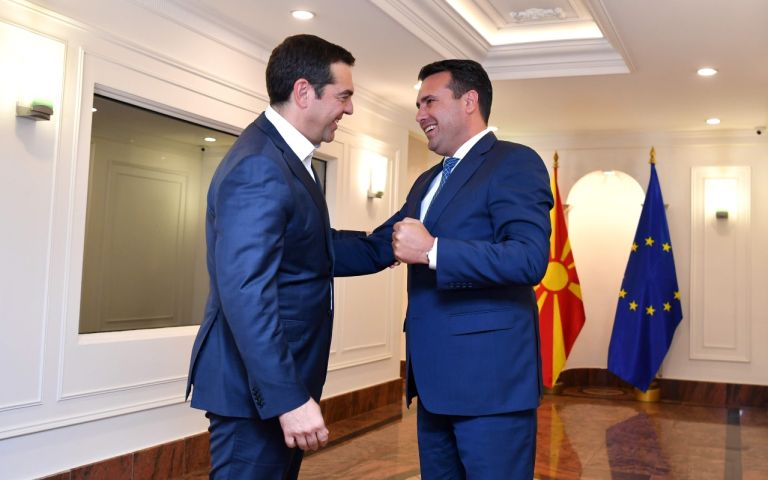
Πηγή Φωτογραφίας: ΣΥΝΑΝΤΗΣΗ ΤΟΥ ΠΡΟΕΔΡΟΥ ΤΟΥ ΣΥΡΙΖΑ ΑΛ. ΤΣΙΠΡΑ ΜΕ ΤΟΝ ΠΡΩΘΥΠΟΥΡΓΟ ΤΗΣ Β. ΜΑΚΕΔΟΝΙΑΣ Ζ. ΖΑΕΦ ΚΑΙ ΣΥΝΕΝΤΕΥΞΗ ΣΤΟ ΚΑΝΑΛΙ ΤΟΥ ALSAT (EUROKINISSI/ΓΡΑΦΕΙΟ ΤΠΥΟΥ ΣΥΡΙΖΑ/ANDREA BONETTI)
The Prespa Agreement boldly untangled what was a Gordian knot. Typical foolishness prevented it from being fully exploited to Greece’s benefit and allowed it to be undermined by North Macedonia’s jingoistic far-right. The pact follows the same lines and framework as the post-World War II Franco-German peace, friendship and understanding, and is a fine example of how the people of this region can build their future with peace and optimism, without third-party interference. And this at a time when the broader area is plagued by war and intentions of armed conflict.
Contributing to stability in a troubled region and to emancipation from the bonds of history, the Prespa Agreement is of the utmost geopolitical importance. It means security for Greece and the broader region, as much as it does for the Republic of North Macedonia. The latter exists under the constant threat of those aggressive circles which aspire to a “Greater Albania” and a “Greater Bulgaria,” meaning the partitioning of North Macedonia. Greece, in contrast, has every reason to want stability in that country.
The Prespa Agreement also strikes at the heart of certain aspects of irredentism. Our friend North Macedonia acknowledged that the history of the Slav-Macedonians began in the 7th century AD and admitted no connection to Alexander the Great’s Macedonia (Article 7 of the agreement). Likewise, it admitted that its language had no ties to Ancient Macedonia, but belongs in the South Slavic family of languages, as the accord stipulates, meaning it came a thousand years after the Kingdom of Macedonia.
The agreement also foresaw the formation of a committee that would ensure the removal of all irredentist/revisionist references from school books (among others), and especially those used to teach history and geography. The committee completed its assignment with great success just before the 2019 general elections in Greece, and all that was left to be done was for the new government to sign off on it.
Instead of bringing the matter to a happy end, the New Democracy government tore the committee apart by replacing the experts – first and foremost its president, Spyridon Sfetas, a pre-eminent authority on the Balkans and on the Slav-Macedonian language, with no political affiliations, who died ruing the decision – with its own so-called experts, who had the decided disadvantage of not speaking Slav-Macedonian. It should come as no surprise, therefore, that no progress has been made in the five years since.
Not only did the government fail to carry out the agreed higher intergovernmental councils, Kyriakos Mitsotakis didn’t even visit Skopje
No only did the Prespa Agreement solve the problems inherited from the past, it also pioneered a positive agenda for cooperation and improving relations between the two nations and peoples. This means cooperation in every field, such as the economy, culture and research, and across different bodies: associations, unions, universities, public institutions etc.
Instead of pushing bilateral relations toward this end so that Greece could have a reliable friend and ally – with a positive effect across the region – the ND government undermined the realization of all these positive prospects. Not only did the government fail to carry out the agreed higher intergovernmental councils, Prime Minister Kyriakos Mitsotakis didn’t even visit Skopje.
I wonder, didn’t the government ask itself, even once, what would happen if, by its own actions, or lack thereof, it effectively rendered the agreement null or, at the very least, cast it into disarray? And since I’m posing questions, can someone tell me how it would harm Greece to control North Macedonia’s airspace? Is it “treason” for the protocols foreseeing such a thing to be brought to Parliament, when allowing Turkey to control the airspace to our north would be the ultimate sign of “patriotism,” as some foolishly argue? And what, exactly, would happen to Greece if it trained North Macedonia’s clerics, judges, diplomats and even more of its military personnel than it does right now? What does Greece stand to lose that is preventing the government from bringing these protocols-memorandums to Parliament for ratification? And why do certain people who don’t even know the content of these protocols believe that refusal to ratify them is, somehow, a negotiating card that strengthens our position vis-a-vis the other side?
The Prespa Agreement was focused on the citizens of the two countries, on their rights, on facilitating cooperation between them and their civil societies, on strengthening democracy in the region and on supporting democratic reforms in North Macedonia. It offered an enormous amount of support to North Macedonia’s aspirations for European Union membership. Greece wanted and still wants the West Balkans to leave old divisions and recent conflicts firmly behind.
Note 1: A government cannot claim to be serious when its leader feels compelled to say that he disagrees with the Prespa Agreement at the same moment as the accord is being violated or who erroneously claims that the agreement “gave our neighbors a nation and a national identity.” International agreements do no such thing, nor, of course, does the Prespa Agreement, since there is no such thing in international law. I am very afraid that just as some foolishly went around saying that they exercised a veto in Bucharest – which they did not, but they did give then-FYROM the opening to take recourse to the International Court of Justice in The Hague, to Greece’s detriment – so certain people today are foolishly claiming that the agreement imparted things that it did not, while failing to understand the very real risk that such statements will be used to Greece’s detriment – again.
Note 2: Socialist PASOK said it believes the Prespa Agreement to be “ambiguous” and that this is what allowed the new leadership in North Macedonia to “challenge” it. Doesn’t the PASOK leadership understand that the new government in Skopje will respond to international criticism about its violation of the agreement by invoking such statements by Greek politicians? Either the Prespa Agreement is good and any violations of it are wrong or there is no violation because the agreement is ambiguous and hence we are against it. Certain officials in PASOK, and also in ND, are acting and speaking as though they don’t understand that what they’re doing is exposing Greece internationally.
Nikos Kotzias was Greece’s minister of foreign affairs from 2015 to 2018 and a signatory of the Prespa Agreement.
Source: ekathimerini.com//Nikos Kotzias
Διαβάστε όλες τις τελευταίες Ειδήσεις από την Ελλάδα και τον Κόσμο










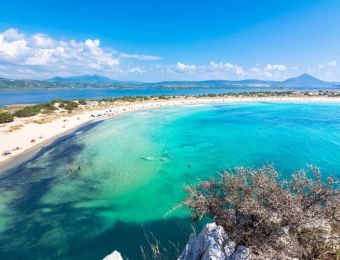

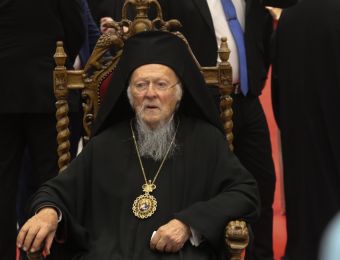
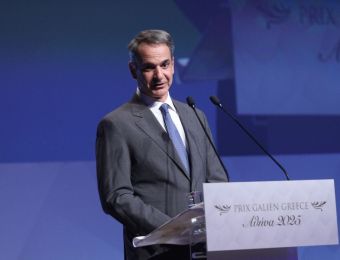
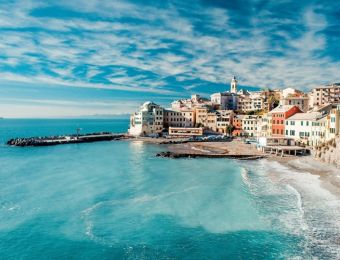
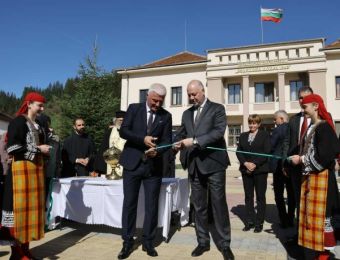



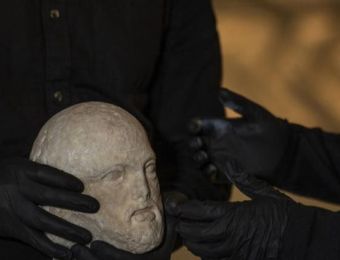
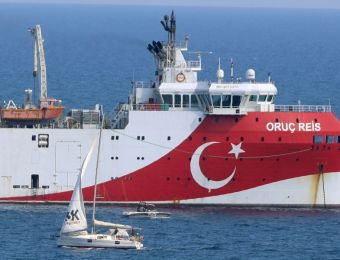

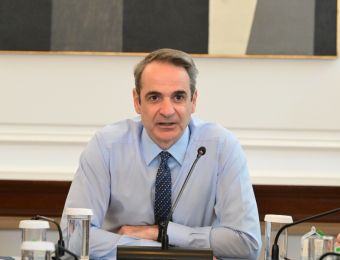
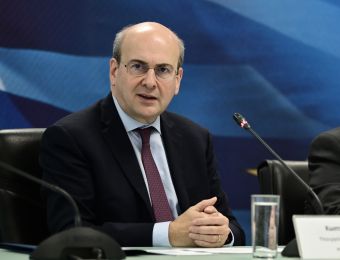




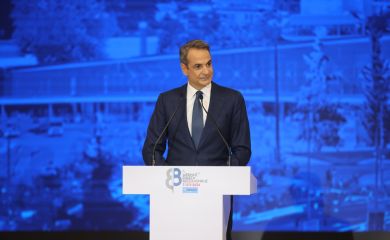


Το σχόλιο σας